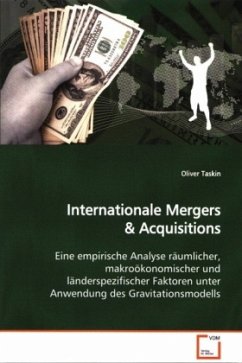
Self-Harming Mergers
A Game Theoretical Analysis
Versandkostenfrei!
Versandfertig in 6-10 Tagen
36,99 €
inkl. MwSt.

PAYBACK Punkte
18 °P sammeln!
In this book we study different solution concepts in three-player games and their effects on social welfare. Furthermore, the outcome under cooperative behavior is compared with the outcome under non-cooperative behavior. A ``merger'' is an agreement between two or more firms of coordinating strategical actions together and sharing the received profits. By analyzing three-player situations in price and quantity competition as well as in more general strategic games, we demonstrate the occurrence of mergers with negative effects. Moreover, a maximal subset of self-harming mergers in sequential ...
In this book we study different solution concepts in three-player games and their effects on social welfare. Furthermore, the outcome under cooperative behavior is compared with the outcome under non-cooperative behavior. A ``merger'' is an agreement between two or more firms of coordinating strategical actions together and sharing the received profits. By analyzing three-player situations in price and quantity competition as well as in more general strategic games, we demonstrate the occurrence of mergers with negative effects. Moreover, a maximal subset of self-harming mergers in sequential and simultaneous versions of general three-player strategic games is constructed under the restrictions that the equilibria with and without merger are unique and the potential merging players have a dominant strategy.












